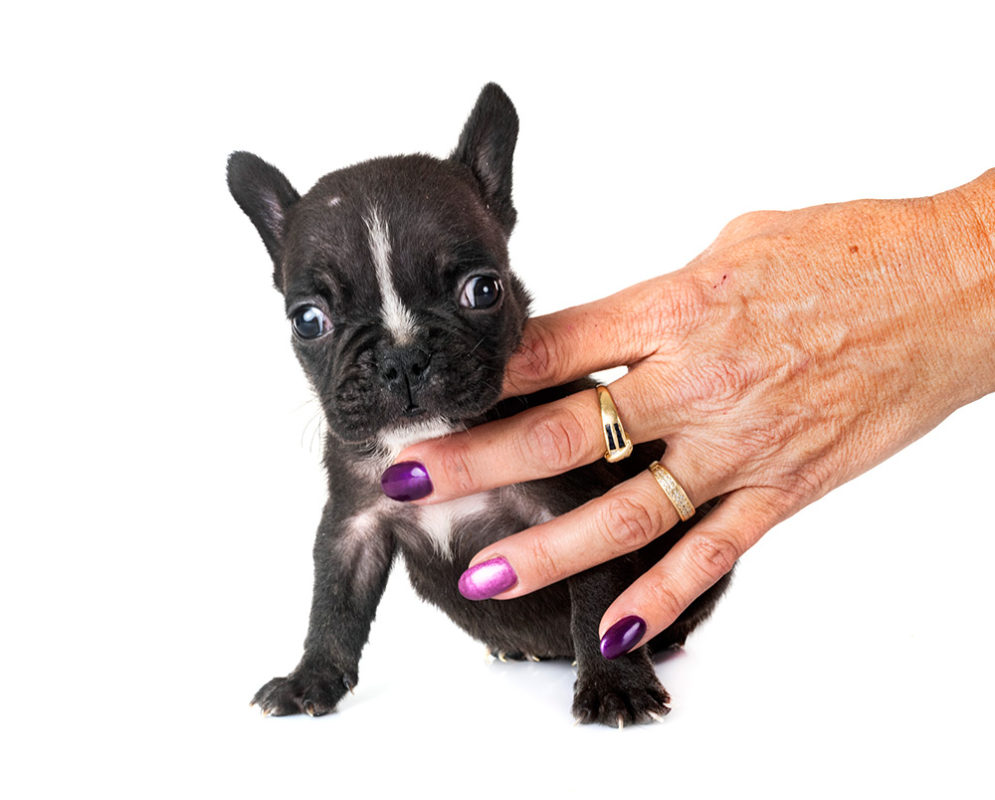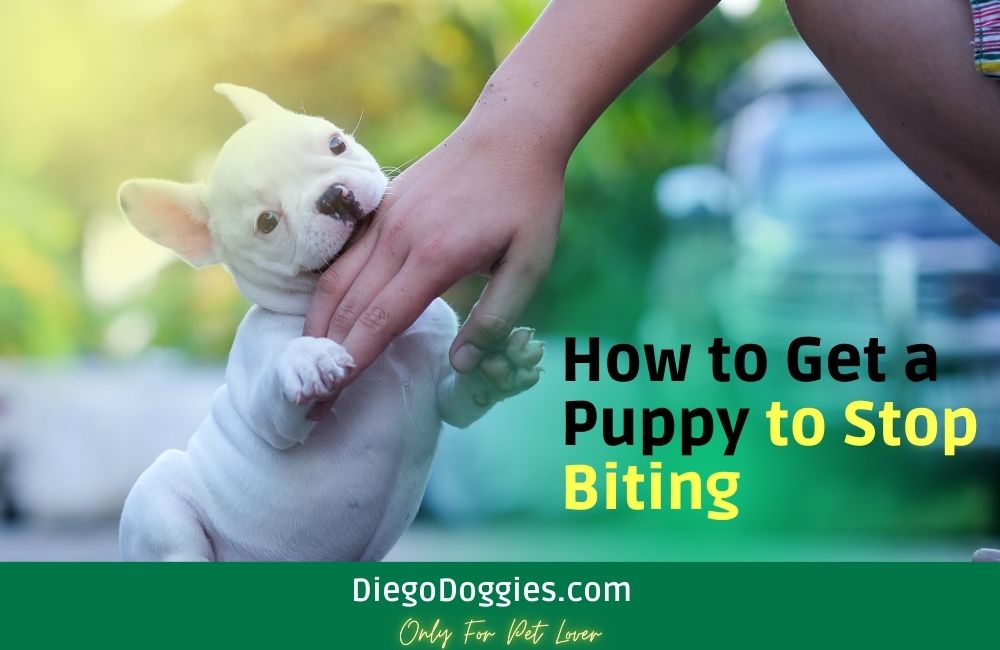Puppies are naturally curious and like to explore their surroundings. When they do this, they may bite. Puppy biting can be frustrating for the dog and the owner. It’s important to start training your puppy how not to bite as soon as possible.
Why Do Puppies Bite
Puppies bite for various reasons, including teething, exploring, playing, and testing their boundaries. Generally, puppies will go through a “biting phase” during which they are naturally curious and eager to explore the world around them.
This often leads to puppies biting on anything they can get their teeth on – from furniture to people’s hands and feet. Puppies also need to learn how hard is too hard when it comes to biting pressure. A puppy may not know that nibbling or mouthing too hard can be painful for humans or other animals.
Teaching your puppy the right way to interact with people and other animals is important in preventing nips and bites as he grows into an adult dog. Providing plenty of chew toys, teaching bite inhibition, and redirecting undesirable behavior are all great ways to help your puppy learn acceptable biting behaviors.

Finally, give your pup exercise and mental stimulation, as this will help reduce the chances of biting out of boredom or hyperactivity. Puppies naturally have sharp teeth and don’t know how hard is too hard yet. With patience, consistency, and lots of positive reinforcement, you can help your puppy grow into a well-behaved adult dog who respects boundaries and knows not to bite.

We will discuss tips on getting your puppy to stop biting
1. Establish Rules
Make sure your puppy knows what is acceptable and what is not. This includes behaviors such as biting. Give your dog clear commands when you don’t want them to bite, like “No” or “Stop,” and reward good behavior with positive reinforcement.
2. Supervision
Always supervise your puppy when they are playing and if they start to get too rough, remove the toy or object that caused the problem. You can also redirect their attention to a different activity, such as chewing on an appropriate toy.
3. Time Out
When your puppy bites you, remove yourself from the situation for a few minutes and put him in a ‘time out’ area. This helps discourage biting behavior and teaches your puppy that this kind of behavior is unacceptable.
4. Redirection
Instead of focusing on what the puppy should not be doing, redirect his attention to something he can do, like playing with an appropriate toy or chew object. Reassure him when he does something right, as this will help him understand that if he behaves appropriately,, he will be rewarded.
5. Be Consistent
Ensure consistency in your training and discipline methods. If you give one command and allow another person to give a different command, then it could confuse your puppy and make it more difficult for them to learn correct behaviors.
6. Praise Good Behavior
Rewarding your puppy with praise and treats when they do something right is important. This reinforces good behavior and helps your pup learn what is acceptable.
7. Train Regularly:
Training should be regular, consistent and frequent to ensure your puppy learns quickly. Short training sessions every day will help your dog develop better habits in the long run.
8. Get Professional Help
Suppose you have difficulty getting your puppy to stop biting. In that case, it may be time to get professional help from a qualified canine behaviorist who can provide tailored advice for your pup’s specific needs.
9. Play Alternatives
Offer alternate games that don’t involve biting such as fetch or tug of war. This encourages your puppy to engage in activities that don’t involve biting and can be lots of fun for both of you!
10. Be Patient
Remember that puppies learn at different speeds, so you must remain patient and consistent with your training methods. With persistence and patience, your puppy will eventually understand what is expected of them and stop biting!
Following these tips should help get your puppy on the path to stopping their biting habit quickly. Contact a professional specializing in canine behavior or consult a veterinarian for further advice if you need additional assistance.

Conclusions
Getting your puppy to stop biting may take patience and consistency. Still, with the right tools and techniques, you can help your pup understand what behavior is acceptable and which isn’t. Establishing rules, supervising playtime, and offering redirection and rewards for good behavior are all ways that can help to teach your puppy not to bite.
It’s also important to remember that puppies learn at different speeds, so remain patient as your pup learns appropriate behaviors. If you have difficulty getting your pup to stop biting or need more advice, seek help from a qualified canine behaviorist or veterinarian. With the proper guidance and support, you can ensure your puppy grows into a happy, well-behaved adult dog!
Related Contents
- 12 Tips For Kayaking With Your Dog
- 14 Basic Dog Obedience Training Commands for Dogs
- 14 Easy Ways to Exercise Your Dog: Fun and Effective Methods
- 8 Therapy Dog Training Tips: How to Train Your Dog
- Choosing The Best Training Treats For Your Puppy
- Dog Walking Tips- 18 Helpful Tips to Walk Your Dog
- How Much Does Dog Training Cost? A Comprehensive Guide

